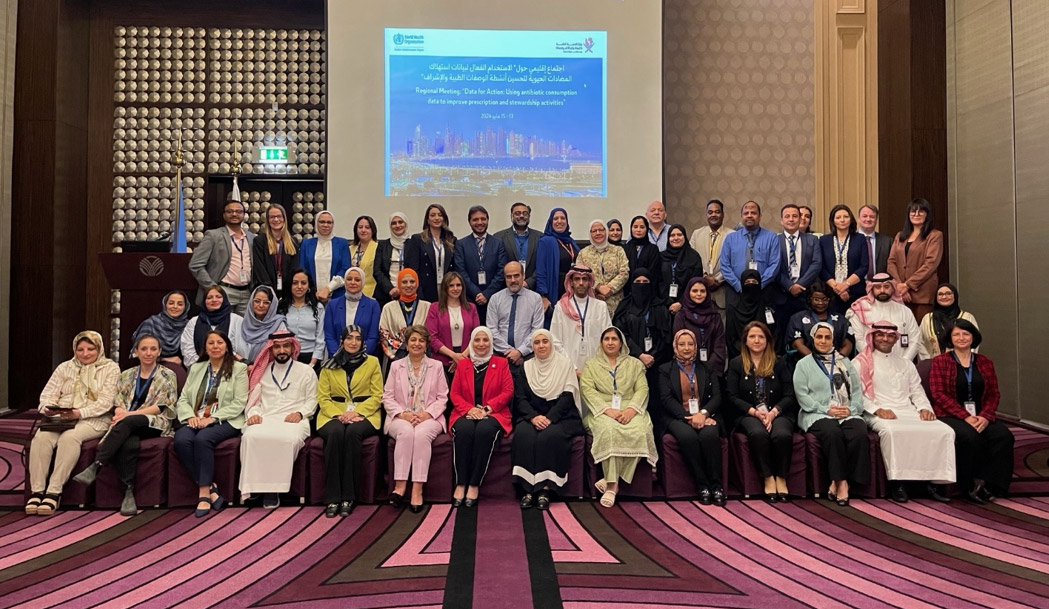
3 June 2024 – Antimicrobial resistance (AMR) is a growing public health threat in the Eastern Mediterranean Region and globally. The Global Research on Antimicrobial Resistance (GRAM) project estimates that 123 834 deaths in the Region in 2019 were directly due to sepsis caused by resistant bacteria, while a further 341 097 deaths were associated with sepsis caused by resistant bacteria.
Inappropriate use of antibiotics is one of the most common drivers of AMR. Yet systems to reliably collect, analyse and interpret antibiotic use data are still being developed in most countries of the Region. In many instances, good quality antibiotic use data are sparse.
Better quality data on antibiotic use patterns – nationally and at facility level – are vital to ensure more appropriate use of antibiotics and hence mitigate the development of AMR. The need to strengthen the collection, analysis and use of antibiotic consumption data was also among the key recommendations of a June 2023 regional meeting that reviewed country programmes on AMR.
Against this backdrop, the WHO Regional Office for the Eastern Mediterranean organized a regional meeting, “Data for Action: Using antibiotic consumption data to improve prescription and stewardship activities”, in Doha, Qatar, on 13–15 May 2024. Qatar’s Ministry of Public Health co-hosted the event.
More than 50 delegates from 11 countries of the Region attended the meeting, along with experts from the Regional Office, WHO headquarters, WHO country offices, World Organisation for Animal Health, Gulf Centre for Disease Control and Prevention, Africa Centre for Disease Control and Prevention, University of Washington and University of Melbourne.
The meeting aimed to support countries to identify the available data sources in country, and to use the data to better understand national- and facility-level antibiotic consumption patterns – ultimately to inform stewardship efforts.
Attendees discussed various case studies that focus on using national- and facility-level antibiotic consumption data to inform market dynamics and politics, hospital antimicrobial stewardship programmes and national consumption targets. They also began to develop a country-level road map to identify and employ potential sources of antibiotic use data for action. The meeting also included an expert panel discussion on regional expectations and challenges around better use of data for policy and programmatic actions.
There is an urgent need to reduce antibiotic use, as highlighted by Dr Rana Hajjeh, Director of Programme Management and acting Director of the Department for Communicable Diseases Control and Prevention the Regional Office: “Our Region has the highest and the most rapidly rising levels of antibiotic consumption across all the WHO regions. Antibiotics are very precious and essential medicines, an asset we would like to preserve. However, in our Region, we face a double challenge. First, we have inappropriately high use of antibiotics in several countries, and second, there is poor access to essential antibiotics in many countries.”
“Our aim is to improve the access, availability and use of antibiotics, through proper market shaping,” she continued. “This would require building capacity for our national drug regulators and country officials, to better use available antibiotics consumption data to support decision-making. WHO is committed to work with partners and governments to increase investment and capacity-building to support these efforts.”













